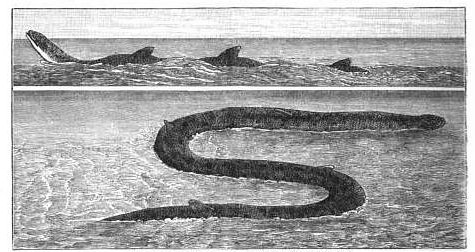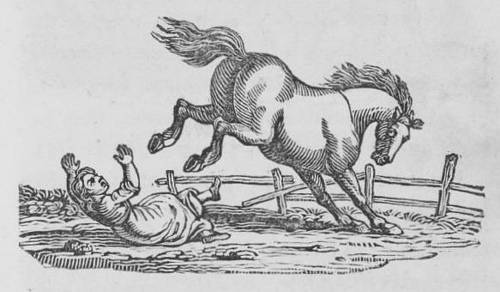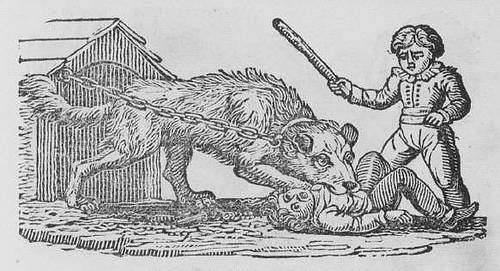“Yields a falsehood when preceded by its quotation” yields a falsehood when preceded by its quotation.
A Watery Welcome

On May 13, 1872, the barque St. Olaf was sailing from Newport to Galveston when a crewman called out that “he saw something rising out of the water like a tall man”:
On a nearer approach we saw that it was an immense serpent, with its head out of the water, about 200 feet from the vessel. He lay still on the surface of the water, lifting his head up and moving the body in a serpentine manner. We could not see all of it, but what we could see from the after-part to the head was about 70 feet long, and of the same thickness all the way, excepting about the head and neck, which were smaller, and the former flat like the head of a serpent. It had four fins on its back, and the body of a yellow, greenish colour, with brown spots all over the upper part, and underneath white.
The weather was calm, the sea smooth. “The whole crew were looking at it for fully ten minutes before it moved away,” Captain A. Hassel reported later. “It was about 6 feet in diameter.”
Easy as Pie
Now I will a rhyme construct,
By chosen words the young instruct.
Cunningly devised endeavour,
Con it and remember ever.
Widths in circle here you see,
Sketched out in strange obscurity.
Count the letters in each word.
The Wooden Horse
In 1943, authorities at a German POW camp in Poland discovered that three prisoners were missing. A considerable space separated the prisoners’ huts from the perimeter fence, so at first it wasn’t clear how they’d escaped.
But the three inmates had something in common — all three had exercised during the day on a vaulting horse in the yard. On investigating, the Germans discovered a 100-foot tunnel leading from that spot to an opening beyond the fence.
The truth became clear. Each day, the prisoners had carried the horse to the same spot with a man hidden inside. While they exercised, the hidden man had used a bowl to lengthen the tunnel, then hid again in the horse as it was carried back inside. The Germans had used siesmographs to detect tunneling, but the prisoners’ vaulting had masked the sounds of their digging.
All three escapees — Eric Williams, Michael Codner, and Oliver Philpot — reached neutral Sweden and were reunited with their families.
Turnabout
José Silva and João Rafael devised this chess game to demonstrate at the 1978 Portuguese Junior Championship. The game is spurious, but the moves are legal:
1. a3 h6 2. b3 g6 3. c3 f6 4. d3 e6 5. e3 d6 6. f3 c6 7. g3 b6 8. h3 a6 9. a4 b5 10. a5 b4 11. c4 d5 12. c5 d4 13. e4 f5 14. e5 f4 15. g4 h5 16. g5 h4 17. Nc3 dxc3 18. Ra3 bxa3 19. b4 Nf6 20. exf6 Rh6 21. gxh6 g5 22. b5 g4 23. b6 g3 24. d4 e5 25. Bb5 axb5 26. d5 Bg4 27. hxg4 e4 28. d6 e3 29. Qd5 cxd5 30. Ne2 d4 31. Nxd4 Be7 32. dxe7 Qxe7 33. Bb2 Qe4 34. fxe4 cxb2 35. a6 b4 36. Nc2 b3 37. Ke2 bxc2 38. Rd1 Nd7 39. g5 Rc8 40. g6 Rc7 41. bxc7 Nb6 42. cxb6 h3 43. Rd7 Kxd7 44. Kd3 Ke6 45. e5 Kf5 46. Kc4 Ke4 47. Kc5 Kd3 48. Kd6 Kd2 49. Kd7 Kd1 50. Kd8 f3 51. g7 g2 52. h7 a2 53. f7 h2 54. b7 f2 55. a7 e2 56. e6 Kd2 57. e7 Kd1

Okay so far? Now 58. a8=R h1=R 59. b8=N g1=N 60. c8=B f1=B 61. e8=Q e1=Q 62. f8=B c1=B 63. g8=N b1=N 64. h8=R a1=R:

The players agree to a draw.
Teach Your Children Well
Safety lessons for young people, from The Book of Accidents (1831):

“Horses are very dangerous, but most useful animals. To be kicked by them is almost certain death.”

“Careless children, in spite of warning, often run across the street when carts and carriages are near, and are knocked down and run over.”

“Many children delight in teazing dogs, and without caution go too near them, by which they get miserably torn and mangled.”
(More to come.)
“Sucked to Death by a Bear”
Aftermath of a bear attack, Dhaka, Bengal, recounted by a Captain Williamson in The Terrific Register, 1825:
We found her husband extended on the ground, his hands and feet, as I before observed, sucked and chewed into a perfect pulp, the teguments of the limbs in general drawn from under the skin, and the skull mostly laid bare; the skin of it hanging down in long strips; obviously effected by their talons. What was most wonderful was, that the unhappy man retained his senses sufficiently to describe that he had been attacked by several bears, the woman said seven, one of which had embraced him while the others clawed him about the head, and bit at his arms and legs, seemingly in competition for the booty.
“We conveyed the wretched object to a house, where in a few hours, death relieved him from a state, in which no human being could afford the smallest assistance!”
All Relative
The world’s largest family tree belongs to Confucius — his descendants have been carefully cataloged through 2,500 years and more than 80 generations.
This year will see the first published update since 1937. It contains more than 2 million people.
Changeless

It’s possible to have $1.19 and still be unable to make change for a dollar.
Unquote
“Retarded artistically. Idiotic in other respects.” — Teacher’s assessment of 12-year-old Keith Moon, Alperton Secondary School, Wembley, 1958
